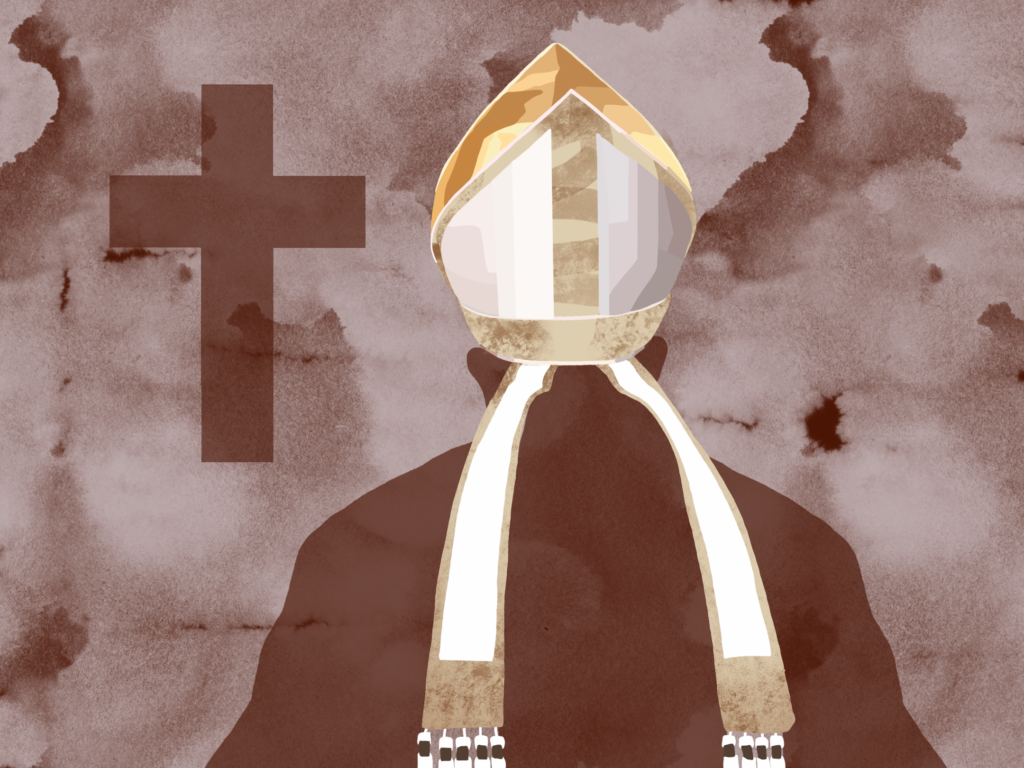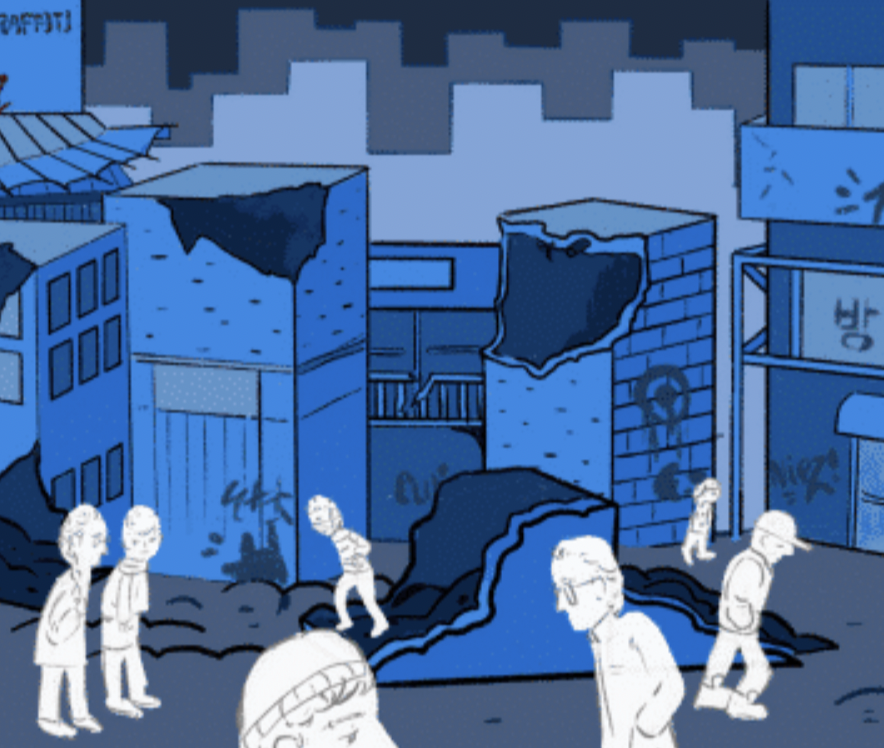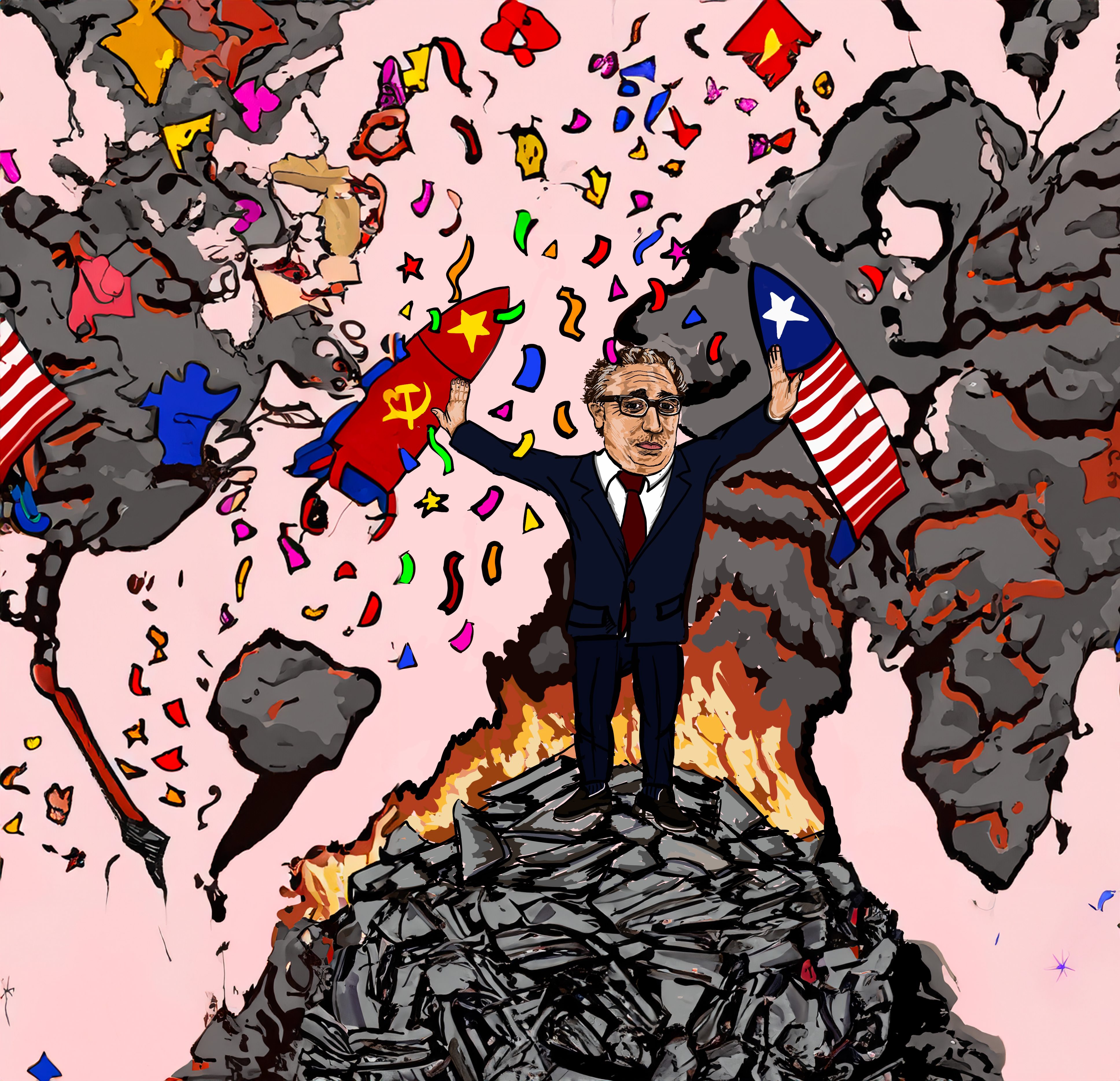
Graphic by Yujin Kim ’23
My personal relationship with religion is complex. After being introduced to both Catholicism and Buddhism at a young age, I found myself comparing the two religions, trying to determine which was the “correct” faith. I frequently criticized the scientifically impossible stories told in the Bible and rejected the overcomplicated traditional practices of Korean Buddhism.
This internal conflict and mixed messaging drove me away from religion for a while. I began to mend my relationship with Catholicism under the teachings of both Pope Benedict XVI and Pope Francis.
Their leadership and guidance pushed me to approach religion from the perspective of spiritual and emotional enlightenment offered in scripture and customs, as opposed to the cynical view I had developed earlier. Despite my appreciation for Pope Benedict XVI’s religious leadership, I’ve seen growing criticism of his time in the role.
Pope Benedict XVI, who passed away on New Year’s Eve in 2022, was the first pope in modern times to resign from the role. While only serving for nine years, he had an immense impact on the structure of the Catholic Church. Still, many religious leaders and followers criticized his leadership for failing to address corruption in the Church, which led to many questioning the legitimacy of the Vatican. Still, it would be ignorant to turn a blind eye to Benedict’s positive contributions.
Pope Benedict inherited an office in crisis, tarnished by the controversy surrounding clerical sex abuse scandals that began under the leadership of Pope John Paul II following his papal appointment in 1978.
Benedict showed valiant efforts to rid the church of abuse, and didn’t hesitate to accuse Bishops of wrongdoing. He revived the Tridentine mass, a tradition that disappeared decades ago, increased the use of art in Christianity, and reintroduced traditional papal garbs that gave him the nickname, “the pope of aesthetics.”
Under immense pressure, Benedict eventually resigned in 2013, becoming the first pope to do so in six centuries.
He explained that he was no longer able to sufficiently exercise leadership over the billions of Roman Catholics around the world and pledged a life of prayer and meditation hidden from the world instead.
Notably, following Benedict’s papal abdication, survivors and victim groups of clerical sexual abuse recognized his direct and noteworthy confrontation of the clerical sex abuse scandal.
Though Benedict no longer possessed the religious authority granted under the position of pope, he didn’t disappear from the limelight. Still respected as a religious leader, he frequently penned letters to address the increasingly controversial stance taken on Catholicism. For instance, Benedict adamantly professed his certainty that “the rationality of faith has and will emerge again” despite advancements in science, changes in societal views, and increasing criticism of the traditional doctrines of Christianity.
Amid an increasingly diverse religious world, Pope Benedict XVI demonstrated that religious leadership can fulfill the celebration of widespread faith without promoting bigotry and inhumanity. Benedict’s devotion to conserving tradition within Catholicism may have been extreme, but his efforts were critical in affirming an organized and strengthened common faith among Christians. His devout faith assured the legitimacy of religious optimism in a distinctly pessimistic status quo.




